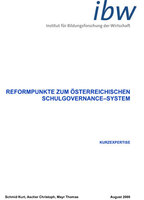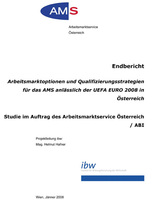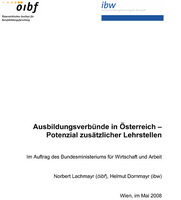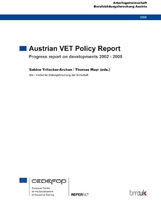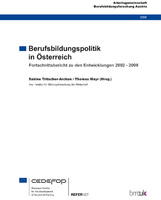Im Geschäftsbereich Forschung erstellt das ibw Studien und Analysen an der Schnittstelle Bildung, Wirtschaft und Qualifikation.
Das thematische Spektrum der ibw-Forschungsarbeiten ist breit und reicht von Analysen der duale Berufsbildung, der schulischen und tertiären Ausbildung über Arbeitsmarktanalysen bis hin zur beruflicher Weiterbildung.
In unserer Forschungsbibliothek finden Sie fundierte Daten, Studien und Hintergrundanalysen des ibw an der Schnittstelle Bildung, Wirtschaft und Qualifikation. Die meisten unserer ibw-Studien haben einen nationalen und zum Teil auch regionalen Fokus. Aufgrund der immer stärker werdenden internationalen Perspektive durch die EU-Bildungspolitik und OECD-Systemvergleiche ist die ibw-Expertise aber auch international immer stärker gefragt. Seit Jahren ist das ibw Partner bzw. Koordinator einer Vielzahl an EU-Projekten. Das ibw ist außerdem Kooperationspartner von Cedefop, dem Europäischen Zentrum für die Förderung der Berufsbildung.

